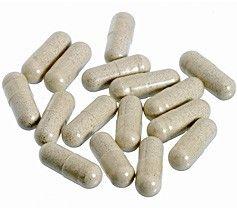fenbendazole capsules: Key Considerations Before and After Treatment
Wiki Article
Exploring the Mechanisms Behind Fenbendazole and Its Influence on Pet Health
Fenbendazole is a commonly used anthelmintic understood for its performance versus numerous bloodsuckers. Its primary mechanism entails the inhibition of microtubule development, which interferes with essential procedures in these microorganisms. Beyond its antiparasitic buildings, fenbendazole likewise shows up to improve immune actions and possesses anti-inflammatory benefits. Comprehending these diverse results can expose new applications for animal wellness. Inquiries stay concerning its complete possibility and safety and security account.The Pharmacokinetics of Fenbendazole
The pharmacokinetics of fenbendazole, an extensively made use of anthelmintic in vet medicine, includes the study of its absorption, circulation, metabolic rate, and excretion within pet systems. After management, fenbendazole is swiftly soaked up from the intestinal system, with peak plasma focus taking place within hours. Its circulation is affected by elements such as tissue binding and lipid solubility, permitting it to permeate different cells efficiently. The medication goes through substantial metabolism primarily in the liver, where it is exchanged active and inactive metabolites. These metabolites play a duty in the drug's general efficiency and security profile. Discharging happens primarily via feces, with a smaller sized proportion gotten rid of via urine. The half-life of fenbendazole differs among types, which affects application regimens. Recognizing these pharmacokinetic properties is essential for maximizing its healing usage and guaranteeing reliable bloodsucker control in veterinary techniques.Devices of Action Versus Parasites
Fenbendazole exerts its antiparasitic effects primarily via the inhibition of microtubule formation in bloodsuckers. This disruption affects their structural stability and cellular features, causing impaired power metabolism. Therefore, the medicine effectively endangers the survival and recreation of different parasitical organisms.Inhibition of Microtubule Development
Inhibition of microtubule development stands for a critical mechanism whereby particular anthelmintic agents, including fenbendazole, apply their effects on bloodsuckers. Fenbendazole binds to tubulin, a protein that creates microtubules, interrupting the polymerization procedure necessary for microtubule assembly. This disturbance impairs crucial cellular features, consisting of mitosis, intracellular transport, and structural honesty. As microtubules play a crucial function in keeping the form and function of parasitical cells, their restraint causes cell cycle apprehension and ultimate death of the parasite. This system is especially reliable against nematodes, as their dependence on microtubules for flexibility and nutrient absorption makes them at risk to fenbendazole. As a result, the inhibition of microtubule development is an essential aspect of fenbendazole's healing efficacy in veterinary medicine.Disturbance of Power Metabolic Rate
Disrupting power metabolic rate is an additional crucial system by which fenbendazole targets parasitical microorganisms. This anthelmintic modifies the energy production paths within parasites, primarily influencing their capability to produce adenosine triphosphate (ATP) By preventing glucose uptake and disrupting mitochondrial feature, fenbendazole restrictions the energy resources necessary for the survival and reproduction of these organisms. Consequently, parasites become progressively susceptible to environmental tensions and immune responses. The interference in energy metabolism not just impacts the parasites straight but additionally minimizes their capacity to take in nutrients, better hindering their growth - fenbendazole 444. In general, the disruption of power metabolism stands for a basic element of fenbendazole's effectiveness versus numerous parasitic infections, adding significantly to boosted animal wellness outcomesPossible Adverse Effects and Safety And Security Profile
The prospective negative effects and safety and security profile of fenbendazole warrant mindful consideration, particularly in veterinary applications. While typically considered safe, some pets might experience adverse reactions, consisting of gastrointestinal disturbances such as throwing up and looseness of the bowels. Additionally, neurological signs, although uncommon, have actually been reported in sensitive people, highlighting the demand for tracking during treatment.
Fenbendazole's safety in numerous types, including pets and cats, has been recorded, but dosage and duration of therapy should be carefully handled to lessen threats. Pregnant or lactating animals may likewise call for special focus, as the effects on developing fetuses or nursing spawn are not fully understood.
Regular veterinary examinations can assist mitigate potential side results and ensure the medication is administered suitably. Subsequently, while fenbendazole is a reliable anthelmintic representative, vigilance regarding its negative effects is essential for keeping animal health and wellness.

Fenbendazole's Impact on Immune Function
Fenbendazole has actually been kept in mind for its potential to regulate immune system responses in pets. Its anti-inflammatory properties might contribute to boosted immune function, giving a double advantage in managing health and wellness (fenbendazole 444). Comprehending these effects is crucial for examining fenbendazole's role in vet medicineBody Immune System Modulation

Anti-inflammatory Properties
Anti-inflammatory results stand for a considerable aspect of fenbendazole's influence on immune feature. Study indicates that fenbendazole might decrease the production of pro-inflammatory cytokines, which are crucial in mediating inflammatory responses. By regulating these cytokines, fenbendazole can potentially alleviate inflammation-related problems in animals. This anti-inflammatory activity not just aids in taking care of signs connected with different diseases but also enhances total immune system effectiveness. Furthermore, its ability to promote a well balanced immune reaction assists prevent extreme inflammatory damages, which can lead to chronic wellness problems. Subsequently, fenbendazole's role in swelling administration underscores its significance in veterinary medication, providing a dual benefit of antiparasitic action and body immune system support for pet health and wellness.Applications Beyond Conventional Parasitic Infections
While primarily identified for its performance versus numerous parasitical infections, fenbendazole has garnered attention for potential applications yet typical extent. Recent studies recommend that fenbendazole might have advantageous results on mobile health and wellness and immune reaction, making it an appealing prospect for taking care of other health conditions in animals. Its reported anti-inflammatory buildings might provide relief for pets suffering from persistent inflammatory diseases. Furthermore, some study indicates that fenbendazole can contribute in supporting the general health of animals by boosting nutrition absorption and stomach health. Its possible as an adjunct therapy in cancer treatment has stimulated rate of interest, as preliminary findings recommend it may prevent lump cell development in certain contexts. These varied applications highlight fenbendazole's convenience, urging more exploration into its multifaceted advantages for animal health past its standard use as a deworming representative.Future Research Study Directions and Effects for Animal Wellness
The exploration of fenbendazole's potential applications has actually opened brand-new avenues for research study aimed at improving animal health. Future studies could concentrate on its effectiveness against a broader series of pathogens, consisting of microorganisms and viruses, thereby broadening its duty in vet medication. The implications of fenbendazole's mechanisms, such as its influence on immune inflection, warrant further examination to understand just how it can boost total wellness in numerous types.Additionally, research may discover optimal dosages and fenbendazole formulations to maximize efficacy while lessening prospective negative effects. Checking out fenbendazole's collaborating effects with various other drugs can lead to more reliable therapy procedures. Longitudinal researches examining long-term results in pets treated with fenbendazole can supply valuable understandings into its security and performance. Generally, the continued expedition of fenbendazole supplies appealing capacity to improve animal health and wellness, demanding a collaborative method among researchers, veterinarians, and pharmaceutical designers to assist in improvements around.
Often Asked Questions
Can Fenbendazole Be Made Use Of in Animals for Bloodsucker Prevention?
The inquiry of whether fenbendazole can be utilized in livestock for parasite avoidance is pertinent, as producers seek effective treatments (fenbendazole capsules). Study suggests it may supply benefits, yet correct guidelines and veterinary advice are crucial for safe usageWhat Is the Suggested Dose of Fenbendazole for Various Pets?

Exist Any Known Medicine Communications With Fenbendazole?
Present understanding suggests that fenbendazole may engage with specific medicines, possibly impacting their effectiveness or metabolic rate. Veterinary experts recommend talking to a vet to analyze specific pet situations and identify any kind of possible interactions before management.Just How Does Fenbendazole Compare to Various Other Antiparasitic Drugs?
Fenbendazole is commonly compared to various other antiparasitic medicines based on efficiency, spectrum of task, and safety and security profiles. It is favored for its efficiency versus a variety of bloodsuckers while generally displaying marginal negative effects in pets.Is Fenbendazole Effective Against Viral or Microbial Infections in Animals?
The performance of fenbendazole versus viral or bacterial infections in animals continues to be unproven. Research study primarily focuses on its antiparasitic buildings, with limited proof supporting any kind of role in treating non-parasitic infections in vet medication.Report this wiki page